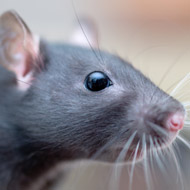
Team to assist in the response to an outbreak of Lassa Fever
The UK Public Health Rapid Support Team (UK-PHRST), has been deployed to Nigeria to help control an outbreak of Lassa Fever.
Lassa fever is a viral hemorrhagic illness that is normally present in Nigeria. However, in recent weeks the number of confirmed cases rose to 317, overtaking the total number of cases recorded in 2017.
The outbreak is most prevalent in the states of Nigeria, Edo and Ebonyi.
Considering the size of the current outbreak and the risk of further spread, the government of Nigeria has called on the UK Public Health Rapid Support Team to help respond to the epidemic.
The UK-PHRST is a joint-run effort of Public Health England and the London School of Hygiene & Tropical medicine. Amongst those deployed to Nigeria include an expert in patient management, two epidemiologists and a logistician.
The team says that it will provide technical and analytical support for the public health response to control this outbreak, and will also assist with important research on Lassa fever that can provide insight for controlling the disease in the future.
The team will be working alongside the Nigeria Centre for Disease Control, the Worlds Health Organisation (WHO) and other experts in outbreak control to support the Nigerian government.
“The Lassa fever situation in Nigeria has been worsening and now requires an escalated level of response in order to help the Nigerian government slow transmission and save lives,” said professor Daniel Bausch, director of the UK-PHRST. “We are proud to be assisting the government of Nigeria by offering specialist support that will benefit the country both in the immediate and long-term.”
Public Health Minister Steve Brine MP, added: “Viruses like Lassa fever do not respect borders – and it is only right that we share our expertise with countries facing serious outbreaks around the world.
“Our invaluable Rapid Support Team will provide help on the ground in Nigeria to manage the spread of the virus, and grow the country’s ability to protect itself from other dangerous diseases."
Lassa Fever is spread by rats to humans usually through direct contact with urine or faeces. Typical symptoms include fever, headache, sore throat, abdominal pain and diarrhoea. In severe cases the disease can also induce bleeding and shock.



 The latest
The latest